Does Genesis 1 Mean the World is Abundant? Not So Fast.
What If Things Actually Are In Short Supply?
This is the first in a series examining scarcity, theologically considered, and how it affects our moral lives.
Some of these will be paywalled for supporting subscribers. To read the whole series, and to join in the Catholic Social Teaching and Neil Postman reading groups happening here, become a supporter of this work.
Creation is Good, But is it Abundant?
In the last twenty years, in no doubt occasioned by concerns for a warming planet, and all of the resource and food shortages that come with it, there have been a whole lot of books offering a reading of Genesis 1 which goes something like the following:
Genesis 1 affirms the goodness of God’s creation.
God’s goodness entails excellence and abundance.
The world has enough to supply the needs of creation.
The ways that these works tie together God’s provision and abundance varies. For Brueggemann, the connection is cosmic: it is God’s vision for the world versus the idols’ way of competition and acquisitiveness. McFague takes a similar approach, emphasizing the way in which there is enough, ecologically speaking, but that our way of distributing goods is unjust. Voskamp takes a bit different route, for her interests are more pious: the life with God is a life overflowing, for the gifts of God are endless and endlessly available.
Of the three, it is Voskamp, interestingly enough, which resonates most with the ways that the earliest Christians read Genesis. It is interesting, because of all generations of Christians, you would think that the agrarian world of Rome would be in sync with Brugemann and McFague’s concerns. For in the ancient world, famines were real, food shortages not infrequent, and awareness of our dependency on climate rhythms were deep.
But in theological treatments of Genesis 1-3 from the ancient world, you’ll almost never see this theme surfacing. Their concerns, for the most part, were doxalogical, teasing out the logic of the incarnation as it is embedded within the overflowing nature of creation, or asking about the structure of redemption, or inquiring into the nature of a God who is distinct from creation1.
The thing that they didn’t particularly seem interested in was defending the world as materially abundant. I mention this not to say that it’s out of bounds to ask these questions, but just to say that it’s odd that a) a materially scarce culture which b) produced a number of treatments of the book of Genesis very infrequently (if at all) asked the question about whether creation is abundant.
But yet, for our age, it is one of the primary things to read off of the face of Genesis. The rising abundance agenda, given popular voice by Ezra Klein and Derek Thompson’s new book (which I engaged with here), takes it for granted that any scarcity in the world is a choice. Mirroring the work of Bruggemann, it takes for granted the posture that the world gives enough for there to be not just enough, but abundance, more than necessary. All that is needed is for us to get out of our own way to achieve it.
Not So Fast: Breaking the Creation-Abundance Connection
One of the earliest dissidents to the creation-abundance connection is the notorious Thomas Malthus, a 17th century Anglican vicar who famously offered an alogorithim predicting mass starvation if the population rose over a certain amount. Malthus was not a utilitarian, seeking the greatest good for the greatest number of people, seeking to limit the number of people by any means necessary.
Rather, Malthus was a preacher, emphasizing themes of Christ’s atoning work and of human sinfulness. For Malthus, we culturally strain to meet our needs in no small part because of the things which Brugemann would later emphasize: the lust of the eyes and the pride of life. That Malthus’ economic theories would prove incorrect is not to say that his theological instincts were wrong. At the birth of the industrial age, Malthus stated clearly that one could not—as Klein and Thompson continue to argue—build ourselves into abundance, if only because we are sinners prone to desiring far more than we need.
Abundance, in other words, remains a utopian vision, one which the Marxist Ernst Bloch saw in the opening chapters of Genesis as always in front of us. This doesn’t mean that creation is a dustbowl out of which we are always scraping the bare necessities. But it does mean that creation is what God gives, and which gives enough, but not all that we might want. For Malthus, this was a theological truism that is hard to swallow, but not wrong: if sin is that thing which pervades creation, it pervades not just human reason or intuitions, but the forms of creation themselves.
God remains present, working in and through a world in which there simply is not enough, or at least, not enough without doing damage to what is. This is not always simply because our distributions are unjust. And it is always simply because we desire good things out of proportion. The conclusion that approaches us is this: the goodness of creation and abundance remains at arms length for no other reason than sin leaves a shadow over creation.
More recently, work has been done to modify a more progressive version of this question, noting that while distribution has a role to play in the scarcity of the world, desire—as William Cavanaugh puts it—is the other less comfortable culprit to talk about. These desires—for security, for what we want—are, as the anarchist Murray Bookchin put it, partly construed by the situation we find ourselves in: live inside a world that teaches us things are scarce for long enough, and your desires will soon enough be malformed.
This, I think, is a good step beyond the assumption that if we build it, it will be enough. For what we desire—absent an intervention of grace— is always out of step with what is available. This is the kind of wanting, hungry creatures we are. It is the kind of confession that, I think, is right for Christians to make.
Dru Johnson follows up this thread likewise by saying that all of this talk about creation’s competiveness isn’t just because capitalism has taught us wrongly about creation, but because maybe that’s just what creation is. In other words, when Darwin emphasizes the competition among the species, he’s just saying what creation is, not offering a counter-theological vision.
So far, you may not be convinced. But let’s keep going.
Getting Over Abundance: Approaching Creation Again
One of the most common objections to this vision is that God commends—indeed, commands—generosity of the people of God. All for it! But this does not in fact require that creation is abundant. In fact, most of the places in which generosity (both divine and human) appears take place in a world of explicit scarcity:
—Manna in the wilderness
—Water from the rock
—Elijah being fed by ravens in a desert
—Elijah fed by the widow of Zaraphath
—The Macedonian church helping the Jerusalem church in the midst of a common famine
—Abraham feeding strangers in the desert
—Jesus feeding multitudes of day laborers with no food in sight
By contrast, when abundance is the background for generosity, it’s usually royalty or wealth that has created it, making it the structural exceptions that prove the rule:
—David opening the treasury to build the temple (1 Chronicles 29)
—Zacheeus giving back what he had cheated
—Ruth benefiting from Boaz’s fields
—Joseph of Arimethea donating the family tomb
To take us back to Genesis 1, two things can be true: God blesses and sustains the world, and the world is one which, under sin, is not abundant in the way we would like. I have ample weeds in my front yard, but the basil plants, I have to work for. There are many things for the stray cats to dine on, but little that humans would call sustainance2. Murray Bookchin, in his Post-Scarcity Anarchism, proposes a series of local ecologies that could each be abundant, given the right modest technologies, but I imagine he’s thinking the world is all like northwest Oregon that thinking his vision could actually work easily in the Mojave desert.
This leads to the provisional claim that I’ll begin teasing out from here:
The way of God is one of generosity and provision, and this occurs in a world whose default is scarcity.
All attempts to simply make material abundance happen, as a matter of necessity, ignore that the world is what it is.
And yet: generosity is to be the rule among the people of God.
This means, of course, that generosity looks much more like sacrifice than it does benevolence, that what we need to navigate the world is less a commitment to smarter technologies than a commitment to lives capable of modesty and generosity.
The questions this raises, about the world, and what it means to live in it well as God’s creatures, are legion, and will be chased down in the months to come.
One could do pretty well by starting here for an overview of the various approaches the earliest Christians employed.
Except….the cats? A different day.

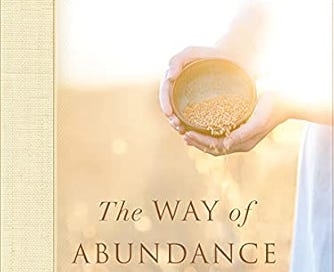


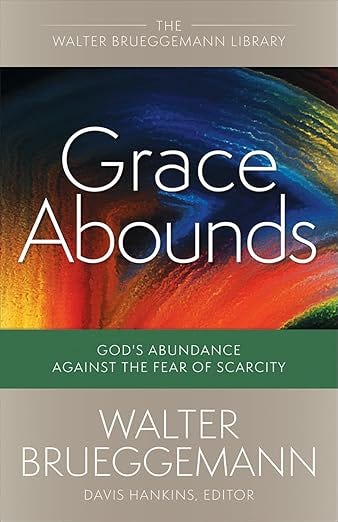
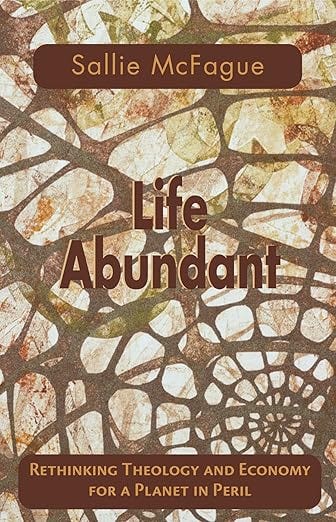

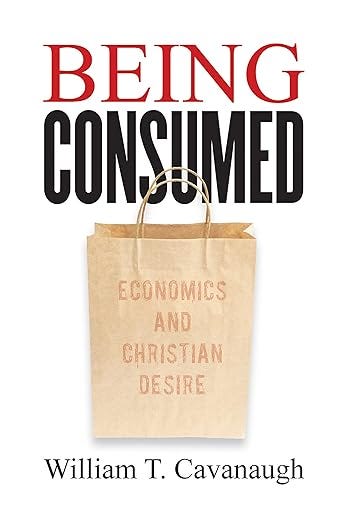
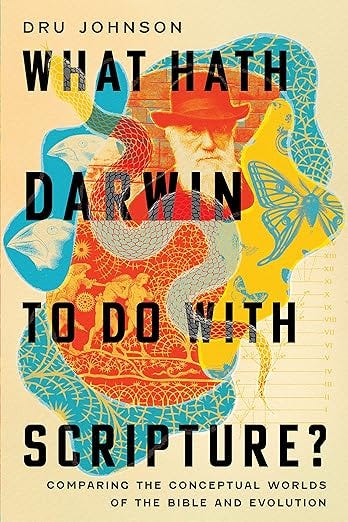
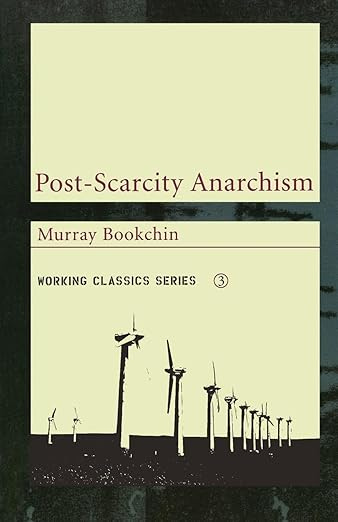
Myles, I appreciate this follow up to your previous post!
Still leaves me with questions though...
Your summary statement: "The way of God is one of generosity and provision, and this occurs in a world whose default is scarcity." I think my questions hone in on further clarity for the word "default." The account of the Fall in Gen 3:14-24 does seem to indicate that scarcity was a function of the fall, so I'm okay if you mean "a *fallen* world whose default is scarcity." Conversely, the goodness of creation before the fall, would seem to indicate that scarcity did not exist in that world.
But if God through Christ is redeeming and restoring creation, what does that mean for how we understand scarcity and abundance? I appreciate the additional thoughts on desire in this post, and agree that in our modern world our conceptions of abundance are all tangled up with our desires, and I agree with you that abundance cannot simply mean having everything we desire. Under your framework as sketched here, what does abundant life in Christ (John 10:10, etc.) look like in a fallen world whose default is scarcity? Jesus's proclamation of abundant life (and certainly worthwhile for us to unpack what that does and does not mean) does seem to be one of the distinctives that makes the Gospel good news.